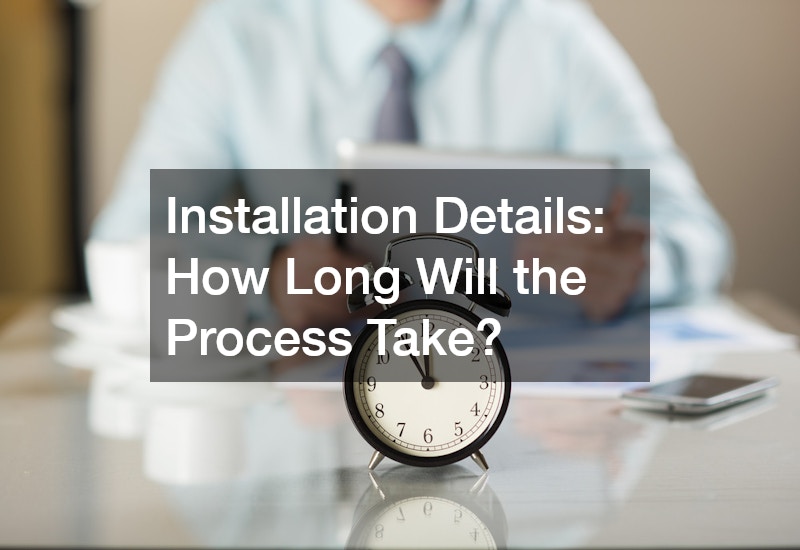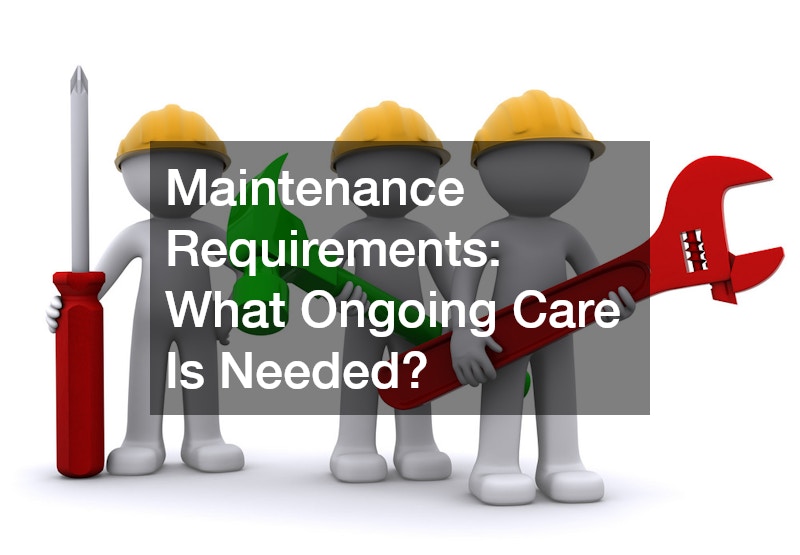
As you likely know, the journey toward sustainable energy begins with a comprehensive solar consultation. Understanding the intricacies that underpin home solar panel installation is crucial for homeowners eager to make an environmentally friendly and financially prudent investment. This article will serve as a detailed guide through the stages necessary for a successful transition to solar energy.
Throughout the process, from assessing your needs to finalizing installation, the knowledge from a solar consultation can be invaluable. Expert advice will illuminate the path, ensuring homeowners clearly understand the benefits and responsibilities associated with their new solar systems. Whether you’re looking at roof replacements due to wear or considering a home addition that incorporates sustainable energy, having a roadmap is essential.
By the end of this article, you will be equipped with the insights necessary to confidently engage with solar consultants, electricians, and roofers as you embark on your sustainable energy journey. We’ll explore fundamental questions like what components you’ll need, the potential financial benefits, and how to navigate local regulations. The information herein will serve as your comprehensive guide to making informed decisions at every step.
Understanding Your Needs: What Are Your Energy Goals?

The first step in a solar consultation is setting clear energy goals, which will guide the entire installation process. Do you aim to reduce your electricity bills significantly, or are you more focused on lessening your environmental impact? Your goals will determine the size and type of system best suited for your home.
It’s also important to consider how your energy needs might evolve over time. Perhaps you have plans for a home addition in the future or anticipate a need for residential generators to maintain power during outages. Understanding these future needs can help in optimizing the design and capacity of your solar setup from the beginning.
During your solar consultation, engaging with an electrical contractor or electrician can provide insights into maximizing efficiency and potential energy savings. They can analyze your current usage patterns to propose a system that aligned with both your immediate and future energy needs. Clearly defined goals set the stage for an efficient and effective solar energy system design.
Installation Details: How Long Will the Process Take?

The timeline for home solar panel installation can vary, depending on multiple factors including the scale of the project and local permitting processes. Generally, the installation phase can take anywhere from a few days to a few weeks once all permits are secured and the system design is finalized. It’s essential to plan accordingly.
Before installation begins, generac installers and residential electrical contractors must assess your property to ensure compatibility and safety. This assessment often involves a detailed inspection of your roof, particularly if it’s a new installation or involves roof replacements. An experienced team will plan efficiently to minimize disruptions.
Another time consideration is the coordination with local utility companies for grid connection. Coordinating with your utility provider is necessary to ensure your residential solar panel system is properly integrated, allowing for efficiency and legality in solar power usage. A competent installer will factor these steps into their timeline estimates during your solar consultation.
Maintenance Requirements: What Ongoing Care Is Needed?

After your solar system is up and running, the long-term performance and efficiency depend largely on regular maintenance. Routine cleaning of solar panels to remove dust and debris can prevent efficiency losses. This is typically a straightforward process but crucial for optimal energy generation.
Additionally, regular inspections by an electrician or electrical contractor ensure that all components function correctly and safely. While solar systems are generally reliable and low-maintenance, failing to address minor issues like loose connections can lead to bigger problems or inefficiencies down the line.
Another key consideration during your solar consultation is developing a maintenance schedule. An experienced consultant will outline the necessary steps to keep your system in peak condition, offering peace of mind that your investment is protected. Maintenance agreements can be established to schedule professional inspections at regular intervals.
Incentives and Rebates: Are There Any Financial Benefits?

Financial incentives can significantly influence the feasibility of home solar panel installation. Many municipalities and states offer rebates or tax credits to homeowners who choose to install solar panels. These incentives are designed to offset initial costs and encourage investment in renewable energy.
During your solar consultation, experts can provide details on available financial programs that match your state’s offerings. Additionally, some federal incentives may complement local programs, enhancing the overall financial appeal of residential solar panel systems. Understanding these rebates can transform solar energy from a costly upgrade to a savvy financial investment.
Beyond rebates and tax credits, the long-term savings on electricity bills add further financial incentives. By generating your own power, reliance on the grid decreases, leading to lower utility bills. Moreover, surplus energy can often be fed back into the grid, potentially earning credits or payments depending on your local policies.
System Components: What Equipment Will Be Installed?
Your solar energy system comprises several vital components, each playing a significant role in energy production and delivery. Photovoltaic panels are the most visible element, capturing sunlight and converting it into electricity. During your solar consultation, the type and quantity of panels will be determined by your energy goals and roof space.
Inverters are another critical component, converting the direct current (DC) generated by the panels into alternate current (AC) used in homes. The right inverter is crucial for efficiency, and your installer will recommend options based on your specific setup during the consultation. Some systems might also incorporate battery storage for energy retention and usage during cloudy days or at night.
Additionally, a reliable monitoring system is often included to track energy production and consumption, allowing homeowners to optimize usage effectively. Understanding these components, including their purpose and interplay, is essential for anyone considering home solar panel installation. Proper insight equips homeowners to make informed decisions about equipment quality and compatibility.
Warranties: What Kind of Coverage Comes with My System?
Warranties are a key aspect to discuss during a solar consultation, as they provide assurances of quality and reliability over the lifespan of your system. Most solar panels come with a 25-year warranty, ensuring long-term performance and output levels remain above specified thresholds. Knowing the details of these warranties maximizes your investment’s security.
Invereters typically come with shorter warranties, often spanning 5 to 10 years. However, extended warranties are available and worth considering depending on the expected lifespan of your entire setup. This coverage can be particularly beneficial if you anticipate future upgrades or expansions to your residential solar panel system.
Beyond manufacturer warranties, installation warranties cover the work quality provided by your solar installers or roofers. These warranties often protect against potential issues arising from the installation process. Understanding the full extent of these warranties can provide peace of mind, knowing that any unforeseen issues will be addressed efficiently and professionally.
Environmental Impact: How Will Solar Benefit the Planet?
The environmental benefits of installing residential solar panels cannot be understated. Solar energy is a clean, renewable resource that significantly reduces carbon footprints and reliance on fossil fuels. Unlike traditional energy sources, solar power does not emit greenhouse gases, helping combat climate change.
Each solar consultation should highlight these environmental benefits as a core advantage of adopting this renewable energy. By opting for solar energy, homeowners contribute to air quality improvement and resource conservation. This choice aligns with broader goals of sustainability and ecological protection.
Moreover, residential roofing with solar panels contributes to energy independence. Generating power locally reduces the need for large infrastructures that can impact ecosystems through construction and maintenance. This decentralized approach strengthens community resilience and encourages sustainable energy practices for future generations.
Grid Connection: How Will My System Integrate with the Grid?
The integration of solar power systems with the existing electrical grid involves intricate planning and coordination. During a solar consultation, experts map out this connection to ensure seamless energy flow between your home and the grid. Proper integration maximizes energy savings and ensures the reliability of your solar system.
Homeowners can benefit from net metering programs, which allow the surplus energy generated by their system to be fed back into the grid. Participants in these programs can receive credits on their utility bills, effectively lowering energy costs. However, involvement in such programs depends on your local utility provider and state laws.
Working with skilled generac installers and electricians ensures your system meets all legal and technical requirements. A professional ensures that your residential solar panel setup cooperates with grid demands, providing both safety and efficiency. This aspect of installation is pivotal for both the future scalability and profitability of your solar energy venture.
Local Regulations: Are There Permits or Zoning Laws to Consider?
Navigating local regulations is a crucial element of the solar installation process. Each municipality may impose different permit requirements and zoning laws, impacting both the timeline and feasibility of your project. Understanding these regulations is key during the preparatory phase of home solar panel installation.
Your solar consultation should thoroughly address these considerations, offering guidance on how to comply with all regional rules. Some areas have stringent restrictions regarding the aesthetic impacts of solar panels and may require permits for installations. Other jurisdictions may have streamlined processes to encourage solar adoption.
Engaging with local roofers and electrical contractors equipped with regional knowledge ensures compliance and reduces delays. Having experts familiar with local codes can also uncover opportunities for incentives previously unknown. These insights can expedite the permitting process and facilitate smoother progression toward installation.
Future Expansion: Can I Upgrade My System Down the Line?
The potential for future expansion is an important consideration for homeowners during the initial solar consultation. Many homeowners start small, intending to increase their system’s capacity over time as their energy needs grow or financial resources allow. Future upgrades can lead to even greater energy independence and cost savings.
Key components, such as inverters and battery storage solutions, should be selected with scalability in mind. Discussing future needs with your installer during your consultation allows for a design flexible enough to accommodate additional panels or storage systems. Planning ahead ensures seamless integration of these future upgrades.
Residential generators can also be considered for inclusion in later stages to provide backup power. Installation teams can offer recommendations on system designs that anticipate expansion, ensuring your solar systems remain adaptable to technological advancements and changes in your energy needs.
Financing Options: What Payment Plans Are Available?
Understanding available financing options can make solar installations more accessible to homeowners. During a solar consultation, financial advisors can outline various options, from outright purchases to leasing agreements. Different payment plans might offer flexibility in the upfront costs while maximizing long-term savings.
Leasing and Power Purchase Agreements (PPAs) are popular options, enabling homeowners to benefit from solar without significant initial financial investment. These arrangements often include maintenance as part of the terms, which can appeal to those preferencing minimal upfront costs and ongoing support.
For those opting for purchases, financing through home equity loans or solar-specific loans can provide flexible payment terms. The advantage of securing ownership is that once the system is paid off, the homeowner can benefit from free energy generation. Strategic financial consultation ensures that your solar investment aligns with both your budgetary constraints and financial goals.
Embarking on the path to solar energy requires careful planning and informed decision-making. Through a meticulous solar consultation, homeowners can better understand their energy needs, installation timelines, and financial and environmental benefits. This comprehensive insight facilitates an effective transition to sustainable home energy solutions.
By engaging with knowledgeable installers, electricians, and roofers, you can ensure a seamless integration of solar panels with existing home systems. Understanding local regulations and future scalability further enhances the value and sustainability of your solar investment.
Ultimately, the shift to solar energy is a testament to a homeowner’s commitment to financial savings and environmental stewardship. Carrying the knowledge gained from this article forward, homeowners can confidently navigate the journey to a brighter, more sustainable energy future. Reach out to local professionals to learn more.
